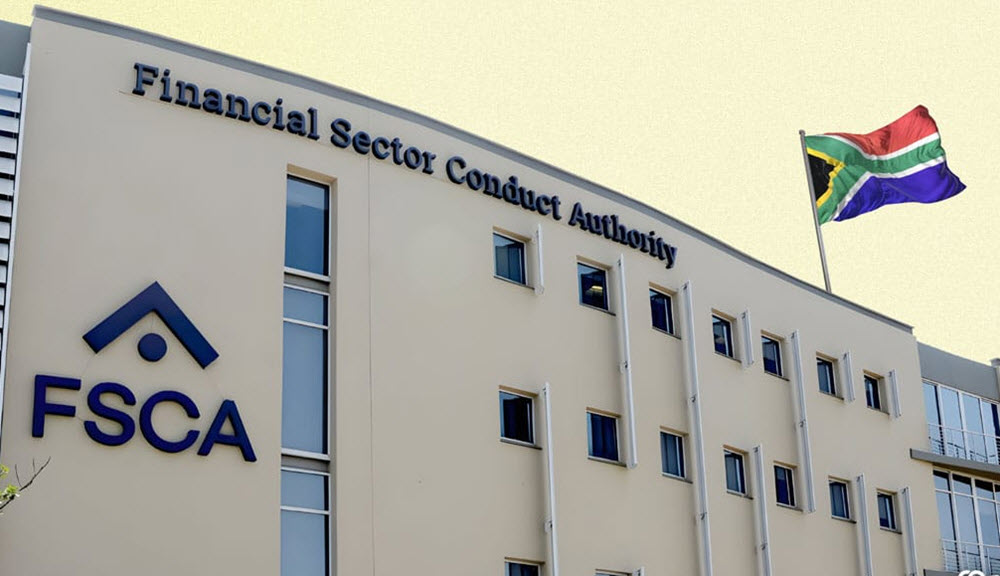What is the FSCA and What Do They Do?
The Financial Sector Conduct Authority (FSCA) is the regulatory body responsible for overseeing South Africa’s financial markets. Established in 2018, it replaced the Financial Services Board (FSB) as part of South Africa’s move to a Twin Peaks model of financial regulation.
Among other things, the FSCA regulates the conduct of financial institutions such as brokers, financial advisors, insurers, and asset managers. Its goal is to protect consumers, ensure market integrity, and promote fairness in the financial system.
The FSCA is an essential regulatory body in South Africa, ensuring that financial markets are fair, transparent, and trustworthy. By regulating financial firms, enforcing compliance, and educating traders, the FSCA protects traders from fraud and malpractice, ensuring a safe environment for participating in the financial markets.

FSCA Regulated Brokers
Short Facts About the FSCA
- The Financial Sector Conduct Authority (FSCA) is a successor agency to the Financial Services Board (South Africa).
- The FSCA is headquartered in Pretoria, the executive capital of South Africa.
- The FSCA is an independent institution established by statute.
Divisions
The six core division of the FSCA are:
- Licensing and Business Centre
- Regulatory Policy
- Conduct of Business Supervision
- Market Integrity
- Retirement Funds Supervision
- Investigations and Enforcement

How Does the FSCA Protect Traders?
Examples of How the FSCA is Working to Protect Traders
1. Regulating Financial Firms
The FSCA ensures that firms operating in South Africa’s financial markets adhere to strict standards of conduct. By enforcing compliance with financial laws, the FSCA aims to protect traders from unfair practices, fraud, and market manipulation. The FSCA must license brokers and financial firms to offer services to retail traders, providing an extra layer of security and credibility.
Here you find a list of the Best FSCA Regulated forex brokers.
2. Ensuring Transparency and Fair Practices
To protect traders, the FSCA mandates that financial firms provide clear and accurate information about their services, fees, and risks associated with trading. This transparency allows traders to make informed decisions, reducing the risk of being misled or caught off guard by hidden charges or risky products. Firms must operate fairly, ensuring their customers are treated honestly.
3. Monitoring Conduct and Market Behavior
The FSCA closely monitors the behavior of financial institutions to ensure they follow ethical practices. It can investigate complaints, conduct audits, and take legal action against firms or individuals found violating the rules. This oversight ensures that traders operate in a fair and safe environment, with reduced exposure to fraud or manipulation.
4. Protecting Consumer Rights
The FSCA actively works to safeguard consumer rights in the financial sector. If traders have disputes with their brokers or financial advisors, they can file complaints with the FSCA. The authority can mediate disputes and even impose penalties or sanctions on firms that fail to meet their obligations. The FSCA’s enforcement actions help maintain the integrity of the market while protecting traders from unethical behavior. Being able to bring an issue directly to the FSCA can be especially important for small-scale hobby traders who may feel that they do not have the resources required to take on a big financial firm in a standard court case.
5. Investor Education
The FSCA also plays a key role in educating traders and investors. Through its financial literacy programs and online resources, the FSCA helps traders understand the risks and opportunities in the financial markets, enabling them to make better decisions and avoid scams or high-risk investments. The FSCA aims to promote informed participation in the financial markets by empowering traders with knowledge.
Examples of FSCA Actions
FSCA imposes 1.1 million ZAR administrative sanction on Mika Finansiele Dienste (Pty)
In October 2024, FSCA announced the decision to impose a R1.1 million administrative sanction on Mika Finansiele Dienste (Pty) Ltd (MFD) for failing to comply with the Financial Intelligence Centre Act, No. 38 of 2001 (FIC Act).
Mika Finansiele Dienste (MFD) is a licensed Financial Services Provider (FSP) under the Financial Advisory and Intermediary Services Act, No. 37 of 2002 (FAIS Act) and an accountable institution under the FIC Act. Two of the objectives of the FIC Act is to combat money laundering and terror financing.
In August 2022, the FSCA inspected MFD and it was revealed that MFD was in breach of certain provisions of the FIC Act.
MFD has developed a Risk Management and Compliance Programme (RMCP), but it was defective, and MFD was therefore in breach of Sections 42(1) and (2). Additionally, MFD was not implementing the RMCP effectively, as it was failing to risk rate most of its customers.
MFD was also in breach of Section 21B, because the firm had failed to establish and verify the beneficial owner of a client.
In their verdict, the FSCA acknowledged MFD´s commitment to addressing its shortcomings and noted its efforts to remediate the identified issues. Therefore, R600 000 of the total penalty was suspended for three years, provided that MFD fully complied with the directive and remained fully compliant during this period.
FSCA imposes 4.5 million ZAR in administrative penalties on Mr Shaheen Kahn and debars him for 10 years
In September 2024, the FSCA announced the decision to impose R4,5 million in administrative penalties on Mr Shaheen Khan and debarr him for a period of 10 years.
The FSCA investigation revealed that from 1 July 2018 to 31 December 2018, Khan rendered intermediary services for a financial product without proper authorization. The financial product was a foreign currency denominated investment product.
During the 10 year long period of being debarred, Khan will not be permitted to provide, or being involved in the provision of, financial services. He will also be banned from acting as a key person of a financial institution, and from providing specified financial services to a financial institution, whether under outsourcing arrangements or otherwise.
This article was last updated on: October 9, 2024